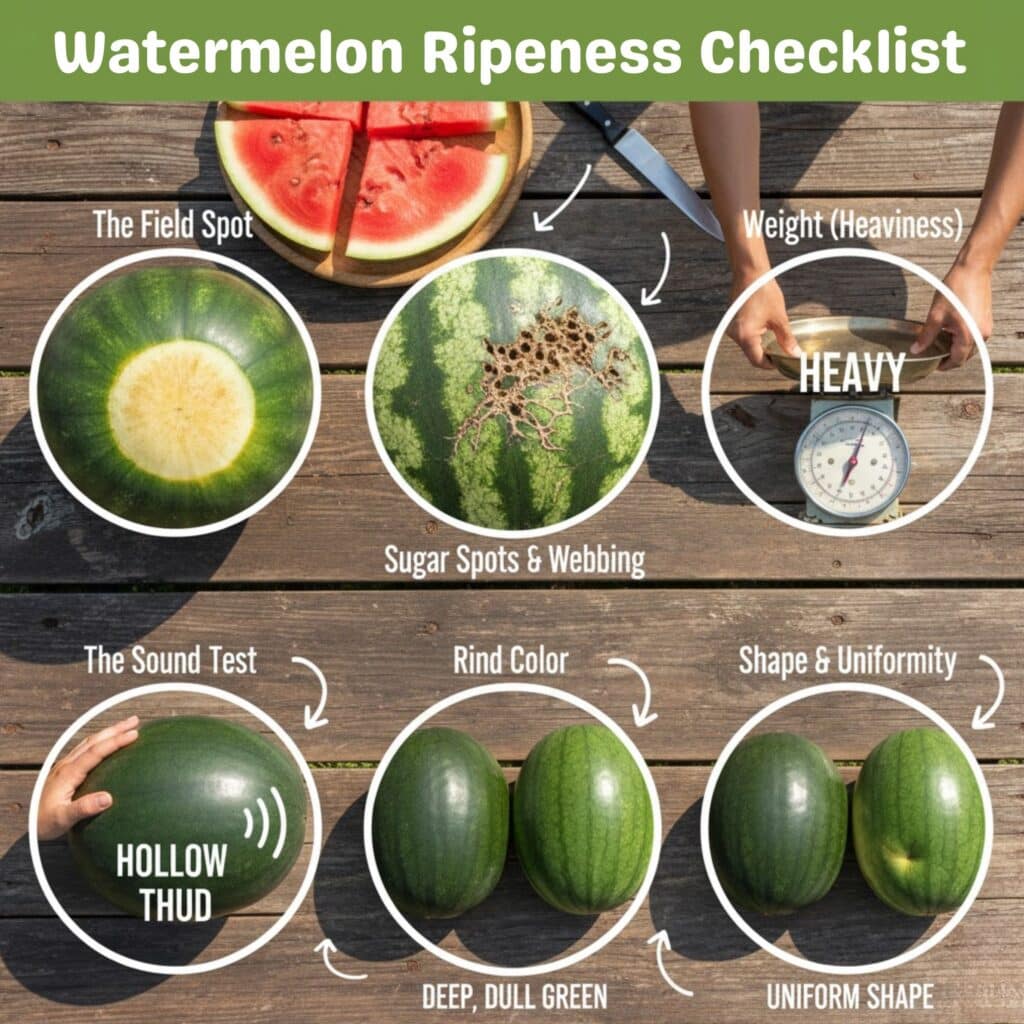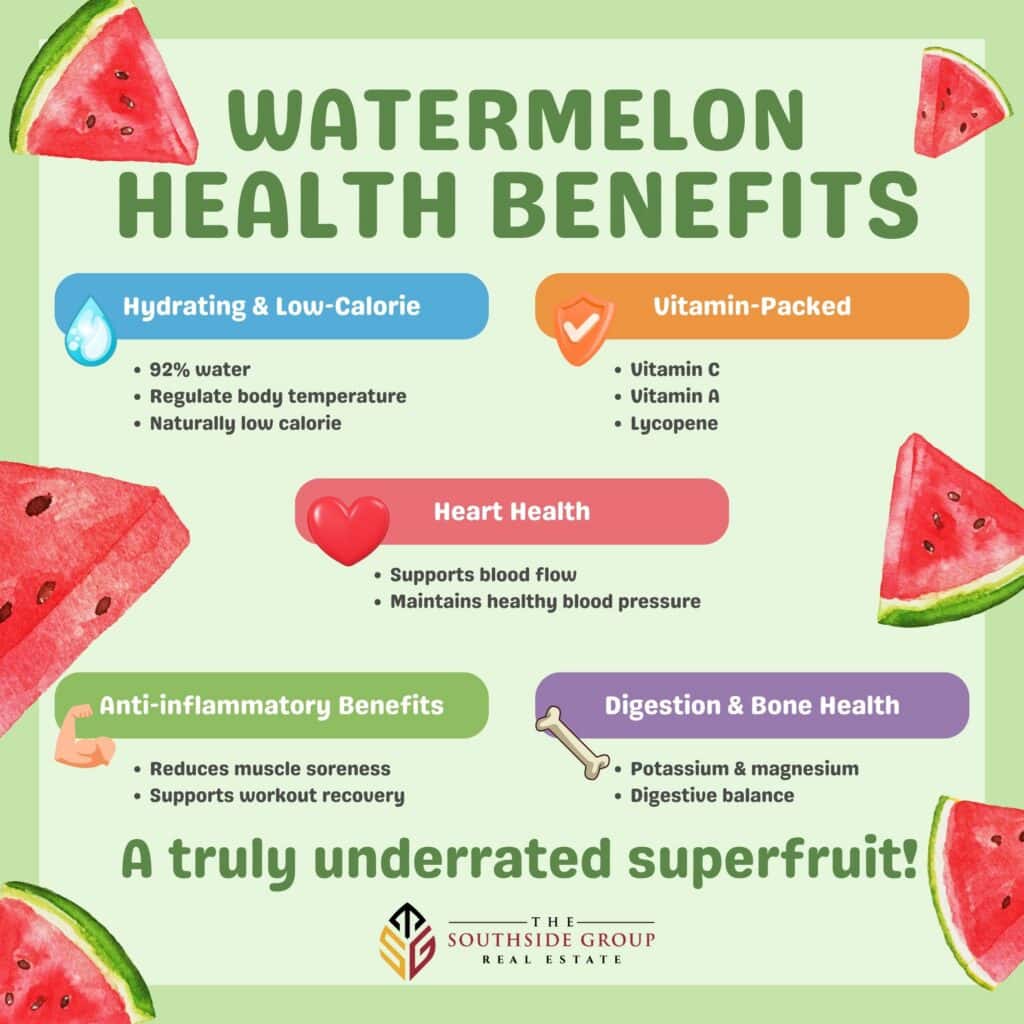How to Pick a Watermelon
Picking the perfect watermelon doesn’t have to be a guessing game. When you understand what to look for—from field spots and sugar marks to weight, shape, and sound—you’ll quickly master how to pick a watermelon every single time. This comprehensive guide breaks down every proven technique used by growers, experts, and seasoned shoppers to help you consistently choose ripe watermelon.
Whether you want tips for the grocery store, your local farmers market, or seasonal guidance specific to Southern Maryland, this mega guide gives you step-by-step insight into selecting the best watermelon to buy. You’ll also learn how to store, cut, and serve your melon, explore popular varieties, discover fun ways to enjoy watermelon, and uncover powerful health benefits you never knew about.
Let’s dive into everything you need to know to pick a perfect watermelon—every single time.
Why Picking the Right Watermelon Matters
Watermelons are often a highlight of summer gatherings, picnics, and backyard cookouts, but too many people settle for melons that are underripe, watery, mushy, pale, or flavorless. Choosing ripe watermelon dramatically improves:
Flavor — Sweeter, richer taste
Texture — Crisp, juicy, refreshing
Aroma — Natural sweetness and freshness
Enjoyment — No disappointment after slicing
With a little knowledge and a quick visual and physical inspection, you can turn watermelon selection from guesswork into a skill. This mega guide teaches every trick to help you create your ripe watermelon checklist—no more disappointing first bites.
How to Pick a Watermelon: Core Principles for Telling If It’s Ripe
When learning how to pick a watermelon, everything comes down to these core signals:
The field spot
Sugar spots and webbing
Weight (heaviness)
The sound test
The melon’s rind color
Its shape and uniformity
You’ll learn each of these in depth below.
The Field Spot Watermelon Test: Your Most Reliable Indicator
One of the simplest and most dependable ways to choose a ripe watermelon is by inspecting the field spot—the area where the melon rested on the ground as it ripened.
A strong field spot indicates the watermelon ripened fully under the sun, which usually means better sweetness and texture.
What the Field Spot Tells You:
Creamy yellow or buttery orange: Perfectly ripe
Deep golden or orange: Often the sweetest watermelons with higher sugar content and better texture
White or pale yellow: Underdeveloped, less sweet, and likely harvested early
Checking the field spot is one of the clearest and easiest ways to identify the best watermelon at the store or market.
Sugar Spots & Webbing: Nature’s Sweetness Clues
Sugar spots and webbing reveal how well the watermelon developed and can help you pick the sweetest fruit.
Sugar Spots
These are dark dots on the rind where sugar is seeping through. They indicate:
High sweetness
Strong internal ripeness
Healthy development
Webbing
Webbing appears as brown, raised, rough patches on the rind.
More webbing = sweeter watermelon
Formed through bee pollination
Promotes better internal sugar distribution
Webbing Size Matters:
Large webbing: Sweet flavor, fully pollinated
Small or no webbing: Milder flavor, less sweetness
If you want the best watermelon, choose one with natural, healthy webbing—not excessive, but enough to show good growth. Many casual shoppers overlook webbing, yet it’s a reliable ripeness indicator.
Size Matters: Why Heavier Watermelons Are Better
One of the best secondary techniques is the weight test—an essential part of any watermelon buying guide.
How to Use the Weight Test
Pick up 2–3 watermelons of similar size
Choose the heaviest one
Heaviness indicates water density, juiciness, and ripeness
This is the reliable watermelon weight heaviness tip experts swear by.
Fun Fact: Elongated Melons Can Be Sweeter
While shape doesn’t determine quality, many shoppers notice:
Elongated melons = sweeter
Round melons = more balanced flavor
Both can be delicious, but it’s a fun tip to consider.
The Watermelon Sound Test: Hollow vs. Dull
Many people wonder: “Does thumping actually work?”
Yes—when done correctly.
How to Perform the Watermelon Sound Test
Hold the melon in one hand
Tap firmly with your knuckles
Listen closely
The Meaning of Each Sound
Deep, hollow sound: Ripe, firm, juicy
High, tight ring: Underripe
Flat, dull thud: Overripe or mushy
Practice this test a few times, and it becomes one of the quickest ways to choose ripe watermelon.
Watermelon Rind Color: What to Look For
A shiny watermelon may look attractive, but shine often signals underripeness. When selecting a melon, pay attention to color and finish:
What to Look For:
Dark green color
Dull, matte rind
Clear, prominent stripes or patterns
What to Avoid:
Shiny, glossy rinds (often underripe)
Uneven coloring
Rough patches without sugar spots
Mastering rind evaluation is a simple but essential step in picking a perfectly ripe watermelon. Dark, dull, and well-patterned rinds usually indicate a sweet, ready-to-eat fruit.
Shape & Symmetry: Another Ripeness Clue
Watermelons may be round or oval, and both can be sweet. What matters is symmetry.
Choose Melons That Are:
Even and balanced
Free of irregular bumps
Uniform without distortions
Uneven growth can lead to watery or stringy flesh inside.
Picking from a Pile vs. Grocery Store Bin
Different environments require different strategies.
Picking from a Large Produce Pile
Look for melons farther down (less handled)
Rotate gently to find field spots
Avoid cracked or scratched melons
Picking from a Grocery Bin
Check for temperature consistency
Look for melons with good air circulation
Use your full checklist—stores often stock underripe melons
Knowing how to tell if a watermelon is ripe in different settings boosts your success rate dramatically.
Explore Different Watermelon Varieties
Don’t limit yourself to traditional red melons! There are dozens of varieties worth exploring:
Yellow watermelon — honey-like sweetness
Seedless watermelon — crisp and convenient
Mini watermelons — perfect for small households
Orange watermelon — unique flavor
Icebox varieties — smaller, sweeter
Trying new types helps you refine your watermelon buying guide preferences.
Southern Maryland Watermelon Tips
Southern Maryland has excellent access to fresh regional produce during peak season.
Prime Season
Mid-summer through early fall
Many local farms supply grocery stores & markets
Where to Shop
Roadside farm stands
Regional grocery stores with local partnerships
Southern Maryland Picking Tips
Look for deep yellow field spots
Choose melons stored in shaded, cooler areas
Roadside stands often offer the most flavorful melons
Ask growers what day the melons were harvested
Locally grown watermelons often show stronger sugar spots and more consistent ripeness.
How to Store a Watermelon
After choosing the perfect watermelon, proper storage preserves its flavor.
Storing Whole Watermelons
Keep at room temperature
Avoid long-term refrigeration
Shelf life: 7–10 days
Storing Cut Watermelon
Store in airtight containers
Refrigerate immediately
Lasts 3–4 days
Keep separate from strong-smelling foods
How to Cut & Serve Watermelon Like a Pro
Cutting watermelon can be simple and enjoyable with the right method.
Step-by-Step Cutting Method:
Wash the rind thoroughly.
Cut off both ends.
Slice the melon in half.
Cut into wedges or cubes.
Use a long, sharp knife for clean cuts.
Serving Ideas:
Classic wedges
Cubes
Watermelon sticks
Fruit kabobs
Grilled watermelon
Watermelon balls for desserts
Serving Enhancements:
Sprinkle a little salt to boost sweetness
Freeze cubes for smoothies
Use watermelon in summer salads
Blend with lime for refreshing agua fresca
Pair with feta or balsamic glaze for a gourmet touch
Creative Touches:
Use a melon baller for uniform shapes
Add watermelon to fruit skewers
Experiment with different watermelon varieties
These tips help you enjoy watermelon in many fun and flavorful ways—far beyond just learning how to pick the perfect melon!
Watermelon Health Benefits
Watermelon isn’t just delicious—it’s incredibly nutritious.
Hydrating & Low-Calorie
92% water
Helps regulate body temperature
Naturally low calorie
Vitamin-Packed
Vitamin C for immunity
Vitamin A for skin and vision
Lycopene for cellular health
Heart Health
Contains citrulline, supporting blood flow
Helps maintain healthy blood pressure
Anti-inflammatory Benefits
Reduces muscle soreness
Supports workout recovery
Digestion & Bone Health
Contains potassium & magnesium
Supports digestive balance
Watermelon is a truly underrated superfruit.
Watermelon: A Fruit for More Than Just Summer
While watermelon shines in hot weather, its benefits extend all year. Thanks to global importation and improved storage techniques, high-quality melons appear in many seasons.
Its versatility makes it ideal for:
Juices
Salads
Snacks
Hydration
Desserts
Nutritional boosts
Even beyond summer, knowing how to pick a watermelon ensures you get the best flavor anytime.
With this mega guide, you now have every expert technique to pick a perfect watermelon confidently. From field spot identification to weight testing, sound evaluation, rind color inspection, and even regional tips for Southern Maryland, you’re equipped with the essentials—and more.
Use these simple, expert-backed methods and enjoy the sweetest, juiciest melons all year long.






